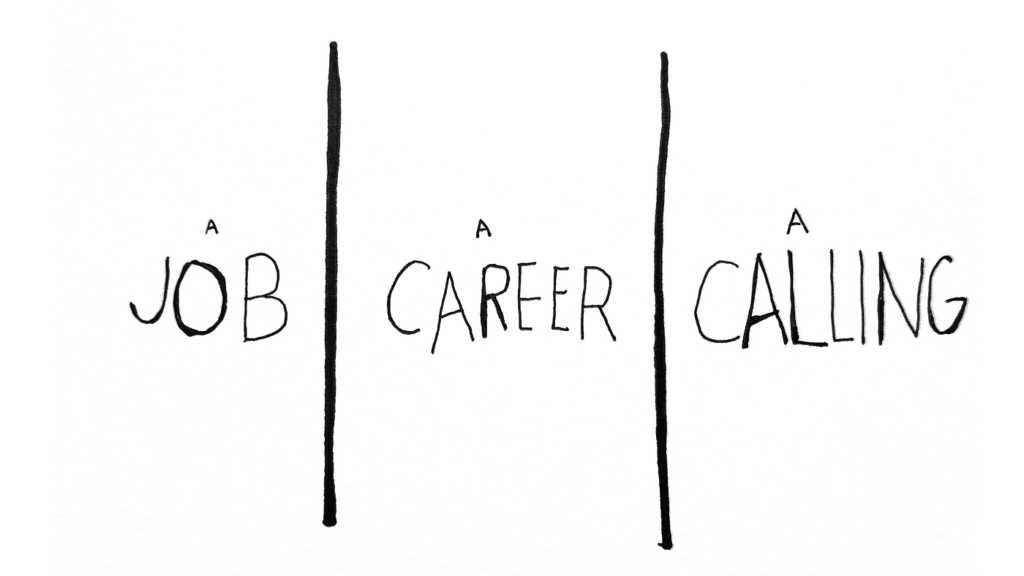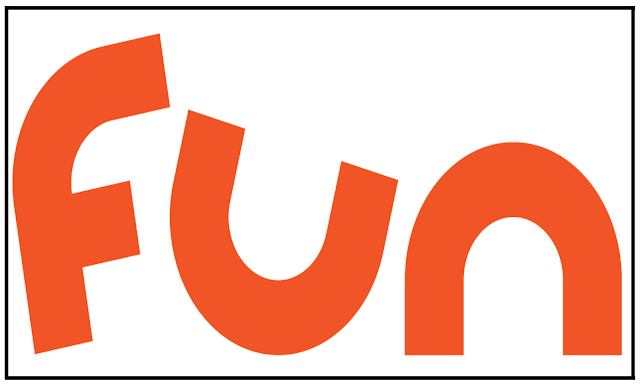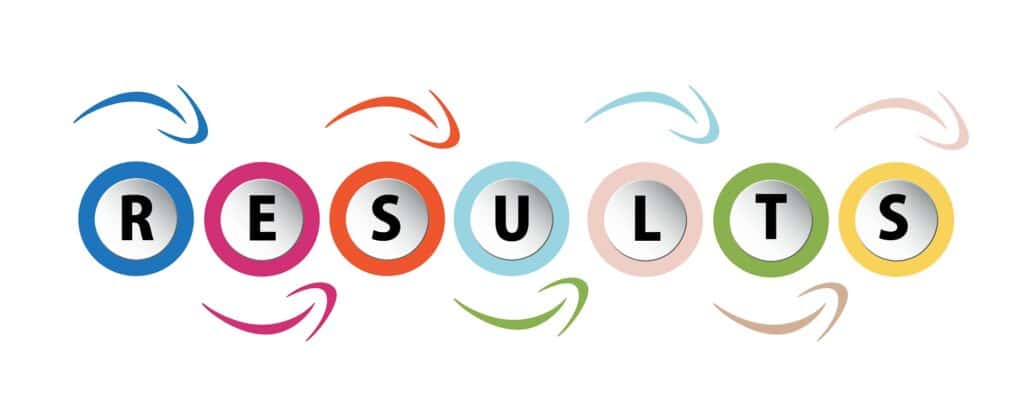Love and work are the cornerstones of our humanness. Sigmund Freud
For most adults, work constitutes more than one-third of waking life, and the psychological study of work is a large academic field. We know that there is huge variation with job satisfaction, and furthermore, that work satisfaction seems to account for a substantial part of the subjective quality of life. Quality of life can, in turn, have a major effect on life stress and on health. So finding the right work is a major life decision.

We are in an era where no decision that our students take in this respect is final, and that’s probably a good thing. Most of us have worked, or will work, in many jobs, and perhaps several professions, and our students will be able to do the same – or perhaps even move to professions that don’t even exist at the moment. So there is, perhaps, less pressure to ‘get it right’ immediately, and there is some comfort there. Nevertheless, the choice is still a big one, and our students are lucky to have the support of our excellent University Advising Centres whose job it is to stay abreast of these things. But in addition to the detailed information, I think it’s important that students understand generally what we know about work, from the research literature. One particularly fascinating study (1) is based on three distinct relations people can have to their work: as Jobs, Careers, and Callings. The distinctions, drawn starkly, are these (I quote directly from the study here):
Jobs: People who have Jobs are only interested in the material benefits from work and do not seek or receive any other type of reward from it. The work is not an end in itself, but instead is a means that allows individuals to acquire the resources needed to enjoy their time away from the Job. The major interests and ambitions of Job holders are not expressed through their work.
Careers: In contrast, people who have Careers have a deeper personal investment in their work and mark their achievements not only through monetary gain, but through advancement within the occupational structure. This advancement often brings higher social standing, increased power within the scope of one’s occupation, and higher self- esteem for the worker.
Callings: Finally, people with Callings find that their work is inseparable from their life. A person with a Calling works not for financial gain or career advancement, but instead for the fulfilment that doing the work brings to the individuals. While the modern sense of the term may have lost its original religious connections, work that people feel called to do is usually seen as socially valuable—an end in itself.
The Job–Career–Calling distinctions do not map neatly onto any occupation. Within any occupation there may be individuals with all three kinds of relations to their work.
Now all this would be of passing academic interest were it not for the fact that we have evidence that there are significant differences between people who have each view. In survey and interview responses, the self-reported categories of Job, Career and Calling yielded important differences.

For me this is very positive news indeed. It tells us that we are absolutely right to be telling students to find something they believe in and to which can commit . It means we can say this safe in the knowledge that it is not some vague platitude, but one that is more likely to lead to health, wealth (in all senses) and life satisfaction.
Compared with those who described themselves as Job and Career respondents, those who described themselves as Calling respondents were significantly better paid, better educated, and had occupations higher in both self-perceived status and objective prestige level. Callings were consistently associated with greater life satisfaction, health satisfaction, job satisfaction and with better health. Calling respondents reported notably and significantly higher life and work satisfaction than Job and Career respondents.
I am struck by the link to the Zen-idea that there are some things that are best sought indirectly, and that arise as by products of a life well-lived. Another fascinating piece of research (2) on precisely this topic. Researchers examined the aspirations of 12,000 college freshmen at elite universities and colleges in 1976, and then measured their life satisfaction nearly 20 years later. Those who had expressed materialistic aspirations as freshmen were less satisfied with their lives two decades later. Furthermore, the materialists were more likely than non-materialists to suffer from a variety of mental disorders.
All this adds up to the need to give a good deal of thought to what we want in our work. If we are doing the right work, it won’t be something we leave behind when we step out of the workplace. I once told an extremely hard-working colleague of mine that he needs to learn to say ‘no’ – and was humbled by his reply when he said that he had tried that, but then he ended up sitting at home wishing he was doing whatever it was that he said ‘no’ to. If we find something we are committed to, that genuinely has value and that means something to us, then the work – that is, the calling – isn’t what we do, it’s what we are in some sense. So choosing the right line of work is part of the process of being the people we want to be.
References
- Wrzesniewski, A., McCauley, C. R., Rozin, P., & Schwartz, B. (1997). Jobs, careers, and callings: People’s relations to their work. Journal of Research in Personality, 31, 21-33.
- Nickerson, C., Schwarz, N., Diener, E., & Kahneman, D. (2003). Zeroing in on the dark side of the American Dream: A closer look at the negative consequences of the goal for financial success. Psychological Science, 14, 531-536



10 Responses
Wonderfully written. Helped me shape my conceptualisation of the three ways (Jab-Career-Calling) to define my work as an IB Math teacher.
It’s good to know I’m within my calling and allows me to further appreciate and safeguard it.
Thank you! Glad it was helpful 🙂
I sincerely hope more parents will read this and encourage their children to follow their true calling.
Thank you Monica!
I love the connection to the Zen concept of indirect pursuits—how life satisfaction often emerges from focusing on meaningful goals rather than material ones. It’s empowering to think that our students, with the right guidance, can navigate toward a ‘calling’ that integrates passion, purpose, and fulfillment.
Yes, I love the idea of ’emergence’. Some time you have to look obliquely; and something cannot be controlled, would have to happen in their own way. Raising children and growing flowers, people and things one falls in love with.
Nice post
Nice
This is so good!
Achievement in accumulating material wealth can be an easy “flex” on how one has achieved perceived “success” in life. It can help people think that if they have the biggest flex, they have succeeded. Working in a job that allows them to create the biggest wealth can often seem like the best way to flex. Working in an area that is your calling is often hard to “flex”, but for the individual who finds their calling, “flexing” is inconsequential to their success.
Well written, Nick! Welcome back.